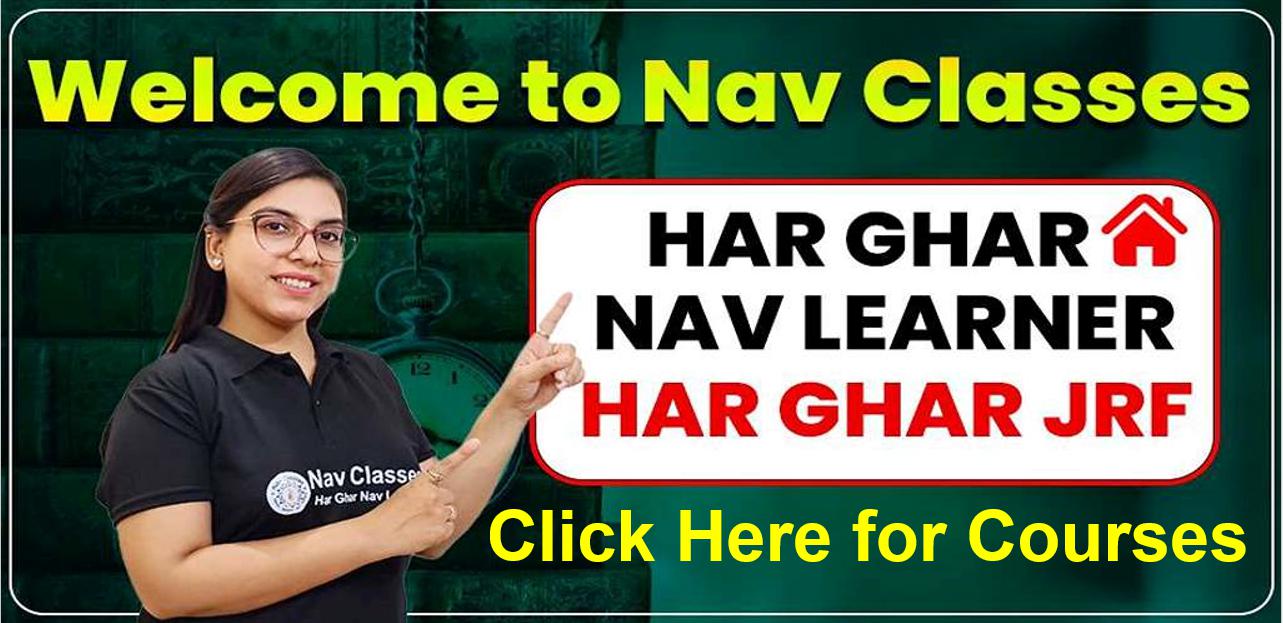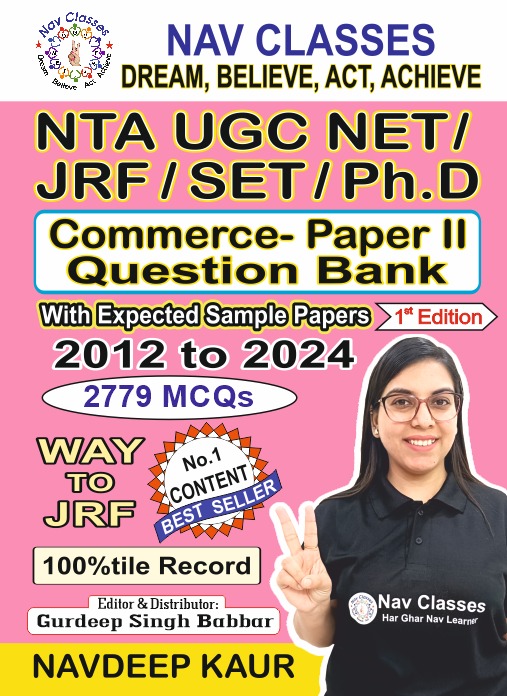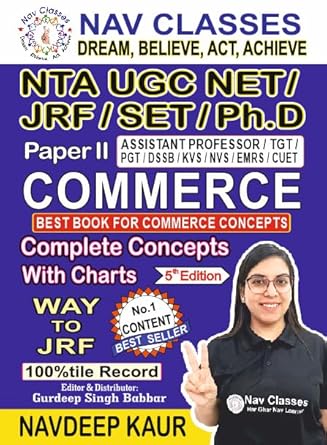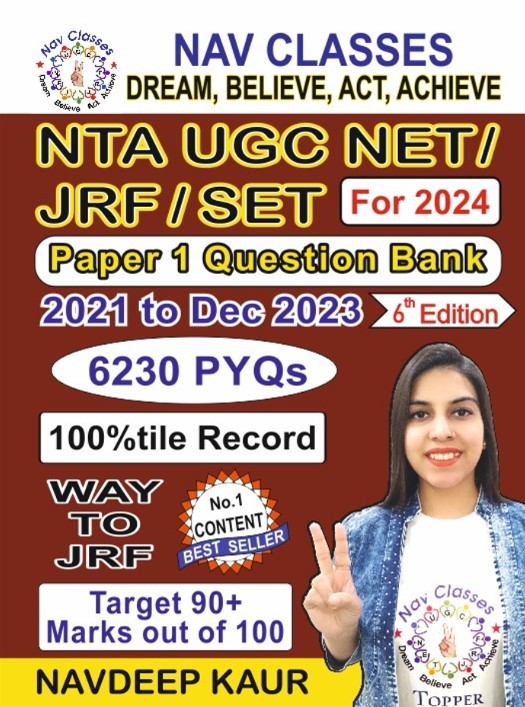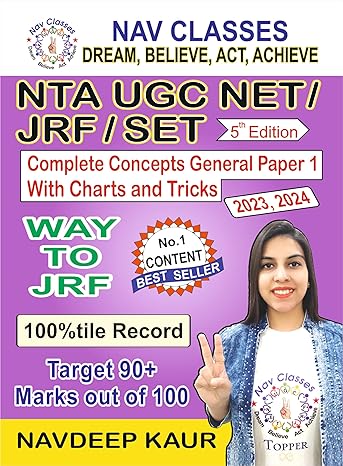ESSENTIAL QUALIFICATIONS FOR POSTS AT SL. No. 1 to 10
(a) Two Year Integrated Post Graduate M.Sc. Course of Regional College of Education of NCERT in the subject concerned.
OR
Master’s Degree from a recognized university with at least 50% marks in aggregate in the following subjects.
SI. No. Post (Subject) Subject (s) at Post Graduate level
1 PGT (English) English
2 PGT (Hindi) Hindi or Sanskrit with Hindi as one of the subjects at Graduate level
3 PGT (Physics) Physics/Electronics/Applied Physics/Nuclear Physics
4 PGT (Chemistry) Chemistry/Bio Chemistry
5 PGT (Economics) Economics/Applied Economics/ Business Economics
6 PGT (Commerce) Master’s degree in Commerce. However, holder of Degree of M.Com in Applied/ Business Economics shall not be eligible.
7 PGT (M athematics) Mathematics/Applied Mathematics
8 PGT (Biology) Botany/Zoology/Life Sciences/Bio Sciences/Genetics/ MicroBiology/Bio-Technology/Molecular Biology/Plant Physiology provided they have studied Botany and Zoology at Graduation level
9 PGT (History) History
10 PGT (Geography) Geography
(b) B.Ed. or equivalent degree from a recognized University.
(c) Proficiency in teaching in Hindi and English media.
Desirable Qualifications: Knowledge of Computer Applications.
Download PDF: https://kvsangathan.nic.in/sites/default/files/hq/ANN_003_02-12_2022.PDF
Download Syllabus https://kvsangathan.nic.in/sites/default/files/hq/ANN_004_02-12_2022_0.pdf
Scheme of Exam for Direct Recruitment of Post Graduate Teacher:
The written test is of 180 marks (180 objective type multiple choice questions) carrying 01 mark for each question. The duration of written test will be 180 minutes without any time limit for each part individually.
Section Name -Nature of Questions
Part I – Proficiency in Languages (20 marks):
- General English-10 questions
- General Hindi-10 questions
Part II — General Awareness, Reasoning & Proficiency in Computers (20 marks)
- General Awareness & Current Affairs(10 ques.)
- Reasoning Ability (5 ques.)
- Computer Literacy (5 ques.)
Part-lll: Perspectives on Education and Leadership (40 questions)
(a) Understanding the Learner-(15 questions)
(b) Understanding Teaching Learning -(15 questions)
(c) Creating Conducive Learning Environment –
(d) School Organization and Leadership- (10 questions)
(e) Perspectives in Education
Part IV – Subject-specific Syllabus (100 marks) — Refer Annexure
Professional Competency Test: The Professional Competency Test is of 60 marks (Demo Teaching -30 marks and Interview -30 Marks ).
Note: The weightage of Written Test & Professional Competency ( Demo Teaching:15 and Interview:15) will be 70:30 Final merit list will be based on the performance of the candidate in Written Test & Professional Competency Test taken together.
Scheme &Syllabus of Exam for Direct Recruitment of PGTs:
Part I – Proficiency in Languages (20 marks):
(a) General English(10 questions) Reading comprehension, word power, Grammar & usage
(b) General Hindi(10 questions)
Part II — General awareness, Reasoning &Proficiency in Computers (20 marks):
(g) General Awareness& Current Affairs(10 questions)
(h) Reasoning Ability(5 questions)
(i) Computer Literacy(5 questions)
Part III -Perspectives on Education and Leadership (40 marks):
(a) Understanding the Learner(15 questions)
- Concept of growth, maturation and development, principles and debates of development, development tasks and challenges
- Domains of Development: Physical, Cognitive, Socio-emotional, Moral etc., deviations in development and its implications.
- Understanding Adolescence: Needs, challenges and implications for designing institutional support.
- Role of Primary and Secondary Socialization agencies. Ensuring Home school continuity.
(b) Understanding Teaching Learning (15 questions)
- Theoretical perspectives on Learning -Behaviorism, Cognitivism and Constructivism with special reference to their implications for:
- The role of teacher
- The role of learner
iii. Nature of teacher-student relationship
- Choice of teaching methods
- Classroom environment
- Understanding of discipline, power etc.
- Factors affecting learning and their implications for:
- Designing classroom instructions,
- Planning student activities and,
iii. Creating learning spaces in school.
Planning and Organization of Teaching-Learning
- Concept of Syllabus and Curriculum, Overt and Hidden Curriculum, Principles of curriculum organization
- Competency based Education, Experiential learning, etc.
iii. Instructional Plans: -Year Plan, Unit Plan, Lesson Plan
- Instructional material and resources
- Information and Communication Technology(ICT) for teaching-learning
- Evaluation: Purpose, types and limitations. Continuous and Comprehensive Evaluation, Characteristics of a good tool.
vii. Assessment of learning, for learning and as learning: Meaning, purpose and considerations in planning each.
■ Enhancing Teaching Learning processes: Classroom Observation and Feedback, Reflections and Dialogues as a means of constructivist teaching
c.) Creating Conducive Learning Environment(04 questions)
■ The concepts of Diversity, disability and Inclusion, implications of disability as social construct, types of disabilities-their identification and interventions
- Concept of School Mental Health, addressing the curative, preventive and promotive dimensions of mental health for all students and staff. Provisioning for guidance and counselling.
■ Developing School and community as a learning resource.
(d) School Organization and Leadership(04 questions)
■ Leader as reflective practitioner, team builder, initiator, coach and mentor.
- Perspectives on School Leadership: instructional, distributed and transformative
■ Vision building, goal setting and creating a School development Plan
■ Using School Processes and forums for strengthening teaching learning-Annual Calendar, time-tabling, parent teacher forums, school assembly, teacher development forums , using achievement data for improving teaching —learning, School Self Assessment and Improvement
■ Creating partnerships with community , industry and other neighbouring schools and Higher Education Institutes — forming learning communities
(e)Perspectives in Education(02 questions)
■ NEP-2020: Curriculum and Pedagogy in Schools: Holistic & Integrated Learning; Equitable and Inclusive Education: Learning for All; Competency based learning and Education.
■ Guiding Principles for Child Rights, Protecting and provisioning for rights of children to safe and secure school environment, Right of Children to free and Compulsory Education Act, 2009,
- Historically studying the National Policies in education with special reference to school education;
■ School Curriculum Principles: Perspective, Learning and Knowledge, Curricular Areas, School Stages, Pedagogy and Assessment
Part IV – Subject-specific Syllabus (100 marks): Refer Annexure
Note: The Professional Competency Test (Demo Teaching and Interview), is of 60 marks. The weightage of Written Test & Professional Competency Test ( Demo Teaching and Interview) will be in the ratio of 70:30.
Final merit list will be based on the performance of the candidate in Written Test, Professional Competency Test taken together.
| Test | Subjects | Number of Question | Total Marks | Time |
| Part – I | General English | 10 | 10 | 3 Hours (180 minutes) |
| General Hindi | 10 | 10 | ||
| Part – II | General knowledge & Current Affairs | 10 | 10 | |
| Reasoning Ability | 5 | 5 | ||
| Computer Literacy | 5 | 5 | ||
| Part – III | Perspectives on Education and Leadership | 40 | 40 | |
| Part – IV | Concerned Subject | 100 | 100 | |
| Total | 180 | 180 | ||
KVS PGT Syllabus for General English
The following are the topics that are need to be covered in the General English syllabus-
- Verb and its types
- Tenses and their forms
- Voice (Active Voice and Passive Voice)
- Subject-Verb Agreement
- Unseen Passages
- Vocabulary
- Antonyms
- Synonyms, Grammar
- Idioms & Phrases, etc.
- Articles
- Comprehension
- Fill in the Blanks. Adverb, Error Correction
- Sentence Rearrangement
KVS PGT Syllabus for General Hindi
The topics that are needed to be covered under General Hindi are as follows-
- Antonyms,
- Translation of Sentences
- Fill in the Blanks
- Plural Forms etc.
- Vocabulary
- Grammar
- Synonyms,
- Comprehension
- Error Detection
- Phrases or Muhavare
KVS PGT Part II Syllabus 2022
KVS PGT Part II consists of questions from General knowledge & Current Affairs, Reasoning Ability, and Computer Literacy subject. The detailed KVS PGT Syllabus for Part II has been discussed below.
KVS PGT Syllabus for Reasoning Ability
The following are the topics that comes under Reasoning Ability syllabus-
- Arithmetic Number Series
- Spatial Orientation
- Relationship concepts
- Arithmetical Reasoning
- Non-verbal series
- Observation
- Figures Classification
- Analogies, Discrimination
- Letter and Symbol Series
- Visual Memory
- Similarities and Differences
- Spatial Visualization
- Verbal Classification
- Coding and Decoding etc.
- Number Series
- Essential Part
- Verbal Reasoning, Logical Problems
- Statement and Conclusion
- Statement and Argument
- Letter and Symbol Series
- Analogies
- Theme Detection,
- Cause and Effect
- Logical Deduction,
- Artificial Language
KVS PGT Syllabus for Computer Literacy
The following are the topics that are needed to be covered in the Computer Literacy syllabus-
- Important Terms & Computer Basics
- Paint Brush Use
- About Desktop and Computer Peripherals
- Word Processor and important terms related to it
- Formatting Word Document,
- Internet
- Computer History
- Word Processor
- Exploring Windows
- PPT or Powerpoint Presentation, etc.
- Computer History
KVS PGT Part III Syllabus 2022
There will be 40 questions asked from Perspectives on Education and Leadership subject in Part III. The detailed Perspectives on Education and Leadership syllabus has been discussed below.
(i) Understanding the Learner (10 questions)
- Concept of growth, maturation and development, principles and debates of development, development tasks and challenges
- Domains of Development: Physical, Cognitive, Socio-emotional, Moral etc., deviations in development and its implications.
- Understanding Adolescence: Needs, challenges and implications for designing institutional support.
- Role of Primary and Secondary Socialization agencies. Ensuring Home school continuity.
(ii) Understanding Teaching Learning
- Theoretical perspectives on Learning -Behaviorism, Cognitivism and Constructivism with special reference to their implications for:
vii. The role of teacher
viii. The role of learner
- Nature of teacher-student relationship
- Choice of teaching methods
- Classroom environment
xii. Understanding of discipline, power etc.
- Factors affecting learning and their implications for:
- Designing classroom instructions,
- Planning student activities and,
- Creating learning spaces in school.
- Planning and Organization of Teaching-Learning
viii. Concept of Syllabus and Curriculum, Overt and Hidden Curriculum, curriculum organization
- Competency based Education, Experiential learning, etc.
- Instructional Plans: -Year Plan, Unit Plan, Lesson Plan
- Instructional material and resources
xii. Information and Communication Technology(ICT) for teaching-learning
xiii. Evaluation: Purpose, types and limitations. Continuous and Evaluation, Characteristics of a good tool.
xiv. Assessment of learning, for learning and as learning: Meaning,
considerations in planning each.
(iii) Enhancing Teaching Learning processes: Classroom Observation and Feedback,
Principles of Comprehensive purpose and Reflections and Dialogues as a means of constructivist teaching
(iv) Creating Conducive Learning Environment
- The concepts of Diversity, disability and Inclusion, implications of disability as social construct, types of disabilities-their identification and interventions
- Concept of School Mental Health, addressing the curative, preventive and promotive dimensions of mental health for all students and staff. Provisioning for guidance and counseling.
- Developing School and community as a learning resource.
(v) School Organization and Leadership
- Leader as reflective practitioner, team builder, initiator, coach and mentor.
- Perspectives on School Leadership: instructional, distributed and transformative
- Vision building, goal setting and creating a School development Plan
- Using School Processes and forums for strengthening teaching learning-Annual Calendar, timetabling, parent teacher forums, school assembly, teacher development forums , using achievement data for improving teaching —learning, School Self Assessment and Improvement
- Creating partnerships with community , industry and other neighboring schools and Higher Education Institutes — forming learning communities
(vi)Perspectives in Education
- Role of school in achieving aims of education.
- NEP-2020: Curriculum and Pedagogy in Schools: Holistic & Integrated Learning; Equitable and Inclusive Education: Learning for All; Competency based learning and Education.
- Guiding Principles for Child Rights, Protecting and provisioning for rights of children to safe and secure school environment, Right of Children to free and Compulsory Education Act, 2009.
- Historically studying the National Policies in education with special reference to school
- education.
- School Curriculum Principles: Perspective, Learning and Knowledge, Curricular Areas, School Stages, Pedagogy and Assessment
KVS PGT Part IV Syllabus 2022
The questions in the Part IV will be asked from concerned subjects. The following are the concerned subjects for the KVS PGT Exam 2022-
- Chemistry
- Economics
- English
- Physics
- Maths
- History
- Geography
- Biology
- Commerce and Computer Science
- Hindi

